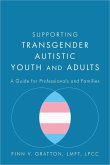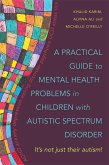"As autism has become a widely prevalent diagnosis, we have grown increasingly desperate to understand it. Whether through baseless blame on vaccination or struggles to determine the potential genetic origins of autism, Americans have devoted a great deal of thought to what autism is and where it comes from. In "Autistic Intelligence," Douglas Maynard and Jason Turowetz focus on a different origin of autism: the diagnostic process. By turning to diagnosis, they ask us to begin with the basic questions of what norms we measure autistic behavior against, why we understand autistic behavior as disordered, and how we go about assigning that disorder to particular people. The authors take a close look at a clinic in which children are assessed for and diagnosed with autism. They spent hours in assessment evaluations with psychologists, pediatricians, parents, and children, and the resulting data enabled them to make plain the systems, language, and categories that clinicians rely upon when making their assessments. Those diagnostic tools determine the kind of information doctors can gather about children, and indeed, those assessments affect how children act. Autism is not a stable category, they show, but the result of an interpretive act. And in the process of diagnosing children with autism, they argue, we miss all of the unique contributions they make the world around them"--
Hinweis: Dieser Artikel kann nur an eine deutsche Lieferadresse ausgeliefert werden.
Hinweis: Dieser Artikel kann nur an eine deutsche Lieferadresse ausgeliefert werden.








